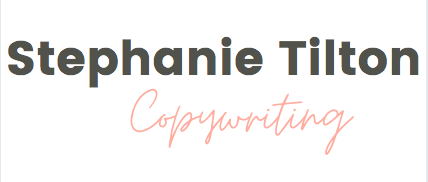Isn’t it the worst feeling when you spend your hard-earned money on something that turns out to be a huge disappointment?
Growing up, my family didn't have a ton of money.
I wasn’t poor by any means, but my parents had to pinch and save to afford certain things.
Like a pair of Hollister jeans that I desperately wanted in High School. All my friends were wearing them and, you know, peer pressure made me want them too.
Even though we couldn’t afford much else after that, my mom bought me that pair of jeans.
One wash later my big hips couldn’t fit in them without showing half of what my momma gave me. Lesson learned. If you’ve ever experienced a similar disappointment after making a big purchase, I’m sure you know what I was feeling at that moment. Mad at myself for wasting money. And, mad at Hollister for making jeans that shrink without including a warning on the label.
Every experience you have like this develops your feelings around money and spending.
You become afraid that every purchase will be “a waste of money” or you find yourself questioning everything about a product or service and how valuable you think it is.
Your Guide to a Profitable Course Launch.
Grab this FREE guide to get a step-by-step plan to help you experience an off-the-charts course launch without feeling overwhelmed and confused.
Here’s the thing…if you’re thinking this way, so is your audience.
That’s why it’s important to help them through these money mindset objections as you’re promoting and talking about your online course.
One way to do this is by giving your course the price tag it deserves. Course pricing isn’t related to the amount of “stuff” you put inside it (worksheets, videos, etc.). What matters is what you’re helping your audience achieve. The more life-changing your course, the higher the price tag should be.
Another thing to consider is how much of your time you plan to give to students once they enroll. Things like weekly calls, Facebook communities, and Voxer support should always boost the price of your course.
Something else that can send potential students running to another course is when you’re constantly lowering or raising your price. Once you settle on a number, stick with it. Continuous discounts can actually make your course seem less valuable than it really is and not worth buying.
But, the best way to overcome money mindset blocks for your potential students is to focus on the overall transformation your course promises when you’re writing promotional emails, social media posts, and even your sales page.
This can be done with a simple statement like this:
“You’ll learn how to *XYZ*, so you can *ABC*.”
Here are a few examples to show you what I mean…
“You’ll learn how to create a container garden, so you can grow vegetables in small spaces like an apartment balcony.”
“You’ll learn how to style the clothes in your closet, so you can save 20 minutes getting ready for work in the morning.”
“You’ll learn how to launch your online course, so you can consistently hit $5k months in your business.”
Talking about your course like this is much more compelling than saying something like, “Module one includes a training video and worksheet.” It also makes the outcome very specific for your audience which allows them to decide if your course really is something they’ll find valuable.
As you’re writing promotional content for your online course, just remember to think about the possible objections your potential students might have that cause them not to buy, and make sure to walk them through those in your copy.
What is it that makes you decide not to purchase a course or program? Is it pricing? Lack of perceived value? Or, something else? Let me know in the comments below.


